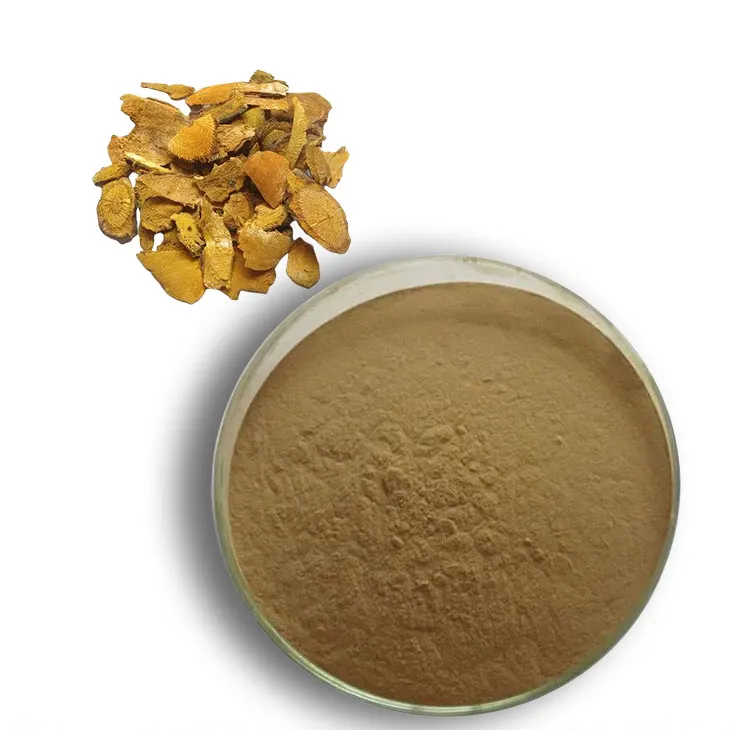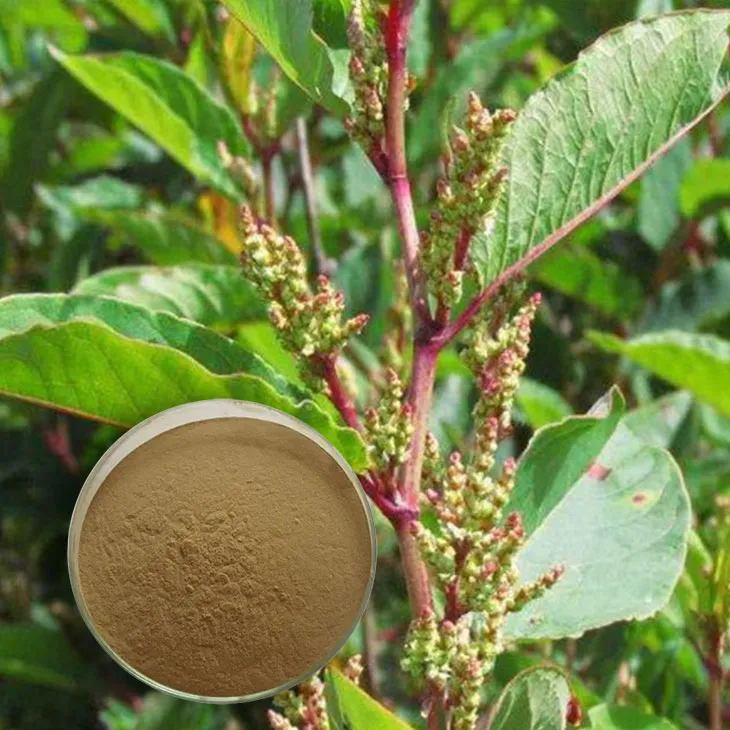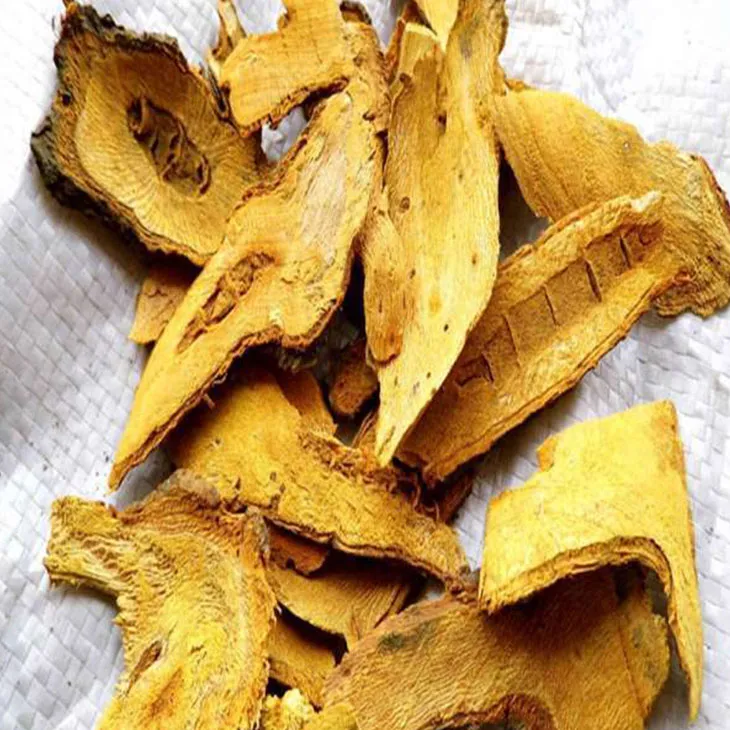- 0086-571-85302990
- sales@greenskybio.com
10 Kinds of Polygonum cuspidatum Extracts That Are Helpful for Improving Health.
2024-12-16

Introduction
Fallopia japonica, also known as Polygonum cuspidatum, is a plant that has been used in traditional medicine for centuries. In recent years, scientific research has delved deeper into its properties, uncovering a wealth of potential health benefits. This article will explore ten different extracts from Fallopia japonica and how they can contribute to a healthy lifestyle.

1. Resveratrol
Resveratrol is one of the most well - known extracts from Fallopia japonica. It is a polyphenol that has been the subject of numerous studies regarding its health - promoting properties.
Antioxidant Activity
Resveratrol is a powerful antioxidant. It helps to neutralize free radicals in the body, which are unstable molecules that can cause damage to cells. By reducing oxidative stress, resveratrol may play a role in preventing a variety of diseases, including heart disease, cancer, and neurodegenerative disorders.
Anti - Inflammatory Effects
It also exhibits significant anti - inflammatory properties. Chronic inflammation is associated with many health problems, such as arthritis and inflammatory bowel disease. Resveratrol can help to modulate the body's inflammatory response, potentially reducing symptoms and improving overall health.

2. Anthraquinones
Anthraquinones are another important group of extracts from Fallopia japonica.
Laxative Effects
Some anthraquinones have laxative properties. They can stimulate the intestinal muscles, promoting bowel movements. This can be beneficial for those with constipation or other digestive issues. However, it should be used with caution as excessive use may lead to dependency.
Antibacterial Activity
Anthraquinones also show antibacterial activity. They can inhibit the growth of certain bacteria, which may be useful in treating or preventing bacterial infections, especially in the digestive tract.

3. Flavonoids
Flavonoids are widely distributed in plants, and Fallopia japonica is no exception.
Cardiovascular Health
Flavonoids in Fallopia japonica extracts can contribute to cardiovascular health. They may help to lower blood pressure, reduce cholesterol levels, and improve blood vessel function. These effects can lower the risk of heart attacks and strokes.
Immune System Boost
Flavonoids also play a role in strengthening the immune system. They can enhance the activity of immune cells, making the body more resistant to infections and diseases.
4. Stilbenes
Stilbenes, in addition to resveratrol, are present in Fallopia japonica.
Anti - Aging Properties
Stilbenes are believed to have anti - aging properties. They can protect the skin from damage caused by UV radiation and environmental pollutants. Additionally, they may stimulate collagen production, which can help to keep the skin firm and youthful.
Cell Protection
Stilbenes also offer cell protection. They can prevent damage to cells caused by oxidative stress and other harmful factors, which is crucial for maintaining overall health.
5. Tannins
Tannins are a class of compounds found in Fallopia japonica.
Antioxidant and Anti - Inflammatory
Tannins possess both antioxidant and anti - inflammatory properties. They can help to reduce inflammation in the body and protect cells from oxidative damage, similar to other extracts from Fallopia japonica.
Oral Health
Tannins can also be beneficial for oral health. They can inhibit the growth of bacteria in the mouth, reducing the risk of cavities and gum disease.
6. Phenolic Acids
Phenolic acids are important components of Fallopia japonica extracts.
Digestive Health
Phenolic acids can contribute to digestive health. They can stimulate the secretion of digestive enzymes, improving the digestion and absorption of nutrients.
Antioxidant Defense
They also play a role in the body's antioxidant defense system. By scavenging free radicals, phenolic acids help to protect cells from damage.
7. Saponins
Saponins are found in Fallopia japonica.
Immune - Modulating Effects
Saponins have immune - modulating effects. They can regulate the immune system, enhancing the body's ability to fight off infections while also preventing over - activation of the immune response, which can lead to autoimmune diseases.
Anticancer Potential
Some studies suggest that saponins may have anticancer potential. They can induce apoptosis (programmed cell death) in cancer cells, potentially slowing down the growth and spread of tumors.
8. Alkaloids
Alkaloids are present in Fallopia japonica extracts.
Central Nervous System Effects
Alkaloids can have effects on the central nervous system. Some alkaloids may act as sedatives, helping to relieve stress and anxiety. Others may have stimulant effects, improving cognitive function.
Antimalarial Activity
There is also evidence that certain alkaloids in Fallopia japonica may have antimalarial activity, which could be useful in the fight against malaria.
9. Terpenoids
Terpenoids are another class of compounds in Fallopia japonica.
Respiratory Health
Terpenoids can contribute to respiratory health. They may help to relieve coughs, reduce inflammation in the lungs, and improve breathing function.
Anti - Allergic Effects
Some terpenoids also have anti - allergic effects. They can inhibit the release of histamine, reducing allergic reactions such as sneezing, itching, and swelling.
10. Glucosides
Glucosides are found in Fallopia japonica.
Metabolic Regulation
Glucosides can play a role in metabolic regulation. They may help to regulate blood sugar levels, which is important for those with diabetes or at risk of developing the disease.
Cell Regeneration
Some glucosides may also be involved in cell regeneration. They can stimulate the growth and repair of cells, which is beneficial for wound healing and tissue repair.
Conclusion
Fallopia japonica extracts offer a wide range of potential health benefits. From antioxidants like resveratrol to immune - boosting flavonoids and cell - protecting stilbenes, these extracts can be a valuable addition to a healthy living regimen. However, it is important to note that more research is needed to fully understand their effects and to ensure their safe use. Additionally, when considering using Fallopia japonica extracts for health purposes, it is advisable to consult a healthcare professional.
FAQ:
What are the main health benefits of Fallopia japonica extracts?
Fallopia japonica extracts may have several health benefits. They may play a role in preventing diseases by potentially having antioxidant properties that can combat free radicals in the body. They could also promote cell regeneration, which is important for tissue repair and maintaining healthy organs. Additionally, enhancing metabolic functions can help in better digestion, energy production, and waste removal.
How do Fallopia japonica extracts promote cell regeneration?
Some components in Fallopia japonica extracts might stimulate the body's natural repair mechanisms. They could provide necessary nutrients or bioactive compounds that trigger cell division and differentiation. These extracts may also help in reducing inflammation around cells, creating a more favorable environment for cell regeneration.
Are there any side effects associated with Fallopia japonica extracts?
While Fallopia japonica extracts are generally considered beneficial, in some cases, there could be potential side effects. Some people might be allergic to certain components in the extracts, which can cause allergic reactions such as skin rashes or respiratory problems. Also, if consumed in excessive amounts, it may disrupt the body's normal balance, for example, in hormonal levels or digestive functions.
How can Fallopia japonica extracts be incorporated into a daily diet?
Fallopia japonica extracts can be incorporated into the daily diet in various ways. They can be taken as dietary supplements in the form of capsules or tablets. Some extracts may also be available as powders that can be added to smoothies or other beverages. In some cases, they might be used in cooking or food preparation, although this is less common.
What research has been done on the effectiveness of Fallopia japonica extracts?
There has been a significant amount of research on Fallopia japonica extracts. Scientists have conducted in - vitro studies to analyze the chemical composition of the extracts and their potential effects on cells. In - vivo studies on animals have also been carried out to observe physiological changes. However, more research, especially large - scale human clinical trials, is still needed to fully understand the effectiveness and safety of these extracts.
Related literature
- The Chemical Constituents and Biological Activities of Fallopia japonica Extracts"
- "Investigating the Health - Promoting Effects of Fallopia japonica: A Review of Current Research"
- "Fallopia japonica Extracts: Potential Therapeutic Applications"
- ▶ Hesperidin
- ▶ Citrus Bioflavonoids
- ▶ Plant Extract
- ▶ lycopene
- ▶ Diosmin
- ▶ Grape seed extract
- ▶ Sea buckthorn Juice Powder
- ▶ Fruit Juice Powder
- ▶ Hops Extract
- ▶ Artichoke Extract
- ▶ Mushroom extract
- ▶ Astaxanthin
- ▶ Green Tea Extract
- ▶ Curcumin
- ▶ Horse Chestnut Extract
- ▶ Other Product
- ▶ Boswellia Serrata Extract
- ▶ Resveratrol
- ▶ Marigold Extract
- ▶ Grape Leaf Extract
- ▶ New Product
- ▶ Aminolevulinic acid
- ▶ Cranberry Extract
- ▶ Red Yeast Rice
- ▶ Red Wine Extract
-
Propolis Extract Powder
2024-12-16
-
Grape Leaf Extract
2024-12-16
-
Bamboo Leaf extract
2024-12-16
-
Yam Extract
2024-12-16
-
Oyster Mushroom Extract Powder
2024-12-16
-
Citrus bioflavonoids
2024-12-16
-
Dandelion Root Extract
2024-12-16
-
Bayberry Extract
2024-12-16
-
Curcumin
2024-12-16
-
Lotus leaf extract
2024-12-16





















